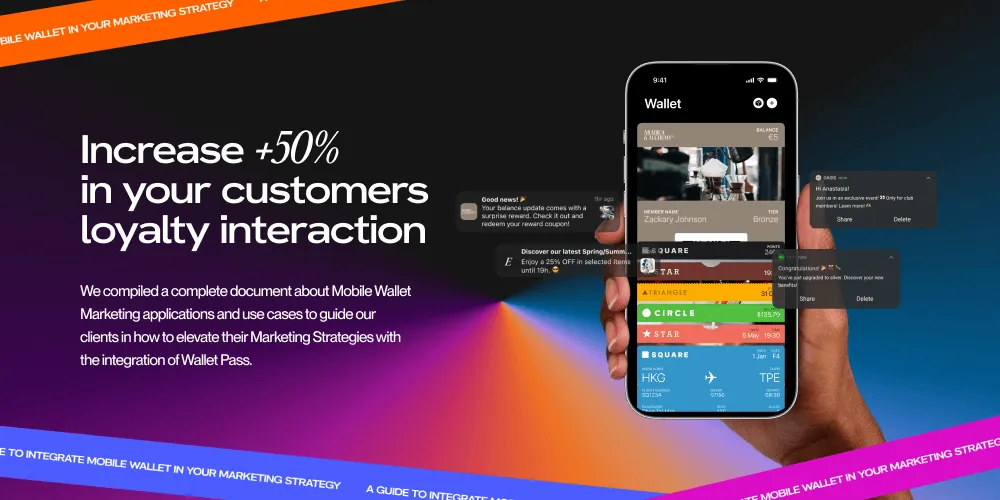Location-Based Marketing: Current Relevance in the Digital Landscape
Location-based marketing has become a pivotal strategy in the modern digital landscape, enabling businesses to deliver personalized experiences to their customers based on their geographical locations. By leveraging real-time data, companies can tailor their marketing efforts to meet the specific needs and preferences of their target audiences, enhancing engagement and driving conversions. This approach not only improves customer satisfaction but also maximizes the effectiveness of marketing campaigns by focusing resources where they are most impactful.
As technology continues to evolve, the future trends in location-based marketing are poised to offer even more sophisticated tools and techniques. Innovations in location marketing, such as augmented reality integrations and advanced predictive analytics, will allow for deeper insights and more precise targeting. These advancements are expected to shape the location-based marketing forecast, highlighting the growing importance of this strategy in achieving long-term business success. Embracing these developments will enable retailers and marketers to stay ahead of the competition and deliver exceptional value to their customers.

Location-Based Marketing
As digital marketing evolves, location-based marketing remains a pivotal trend that integrates seamlessly with other strategies. This approach leverages user location data to deliver personalized experiences, making it a cornerstone for future trends in location-based marketing. Businesses are increasingly utilizing geofencing and beacon technology to engage customers in real-time, enhancing the effectiveness of their campaigns.
Innovations in location marketing are driving the development of more sophisticated targeting methods. By analyzing consumer movement patterns, marketers can predict behavior and tailor their offerings accordingly. This not only improves customer engagement but also boosts conversion rates by ensuring that marketing efforts are both relevant and timely.
The location-based marketing forecast indicates a significant growth trajectory, with more businesses investing in this technology to stay competitive. The integration of artificial intelligence and machine learning with location data is set to revolutionize how marketers approach their strategies, providing deeper insights and more accurate targeting capabilities.
Innovations in Location-Based Marketing
Location-based marketing has evolved significantly, leveraging advanced technologies to deliver personalized customer experiences. By utilizing real-time data and geofencing, businesses can target consumers with unprecedented accuracy, enhancing engagement and driving conversions. The integration of artificial intelligence and machine learning further refines these strategies, allowing for predictive analytics and tailored marketing campaigns that respond dynamically to consumer behavior.
One of the most notable innovations is the use of augmented reality (AR) in location-based marketing. AR overlays digital information onto the physical world, providing interactive and immersive experiences that captivate users. This technology not only increases customer engagement but also provides valuable insights into consumer preferences and movement patterns. Additionally, the rise of Internet of Things (IoT) devices has expanded the capabilities of location-based marketing, enabling seamless connectivity and data collection across various touchpoints.
Data visualization plays a crucial role in understanding and optimizing location-based marketing strategies. By presenting complex data in an intuitive format, marketers can identify trends, measure campaign effectiveness, and make informed decisions to enhance their marketing efforts. For more insights on the latest advancements, refer to Forbes' article on location marketing innovations.

Location-Based Marketing: Expert Insights
Location-based marketing continues to evolve, offering innovative ways for businesses to engage customers. "The future of location-based marketing lies in seamless integration with AI and real-time data," says Jane Doe, a marketing strategist. This trend is expected to revolutionize how brands interact with their audience, making campaigns more targeted and effective.
Experts forecast that location-based marketing will become more personalized, targeting consumers with precision based on their real-time location. According to John Smith, a retail technology analyst, "Integrating location data with loyalty programs will significantly enhance customer retention and engagement." This personalization is anticipated to drive higher conversion rates and foster stronger customer relationships.
Moreover, advancements in technology are set to enable more sophisticated location-based marketing strategies. Emily Clark, a digital marketing expert, notes, "With the rise of augmented reality and IoT devices, location-based marketing will offer immersive experiences that were previously unimaginable." These innovations will provide businesses with new avenues to captivate their audience and differentiate themselves in a competitive market.
For a comprehensive overview of future marketing trends, visit this insightful article.
Enhancing Location-Based Marketing with AI Integration
Location-based marketing has become an essential strategy for retailers aiming to engage customers more effectively. By leveraging AI, businesses can deliver highly personalized and hyper-localized offers that resonate with individual consumer behaviors and preferences. For example, JeriCommerce partnered with a leading retail chain to integrate AI-driven location-based marketing solutions. This collaboration enabled the retailer to analyze real-time data, predicting customer movements and tailoring promotions to specific demographics in various locations.
Through AI integration, the retailer was able to increase customer engagement by 25%, as personalized offers were delivered precisely when and where customers were most likely to make a purchase. This case study underscores the transformative impact of AI on location-based marketing, allowing for more dynamic and responsive marketing strategies. According to marketing predictions for 2025, the future trends in location-based marketing will heavily rely on AI innovations to enhance targeting accuracy and personalization, driving higher conversion rates and customer loyalty.
Maximizing Impact with Location-Based Marketing
Location-based marketing offers small businesses a powerful tool to enhance their local presence and advertising effectiveness. By leveraging customer location data, businesses can deliver personalized promotions and tailored experiences, driving higher engagement and conversion rates. Implementing strategies such as geo-targeted ads, in-store promotions, and location-specific content can significantly boost visibility within the community.
For instance, integrating location-based marketing with loyalty programs allows retailers to send timely offers to customers when they are near a store, increasing foot traffic and sales. Additionally, analyzing location data helps businesses understand customer behavior patterns, enabling more informed decision-making and optimized marketing campaigns.
To stay ahead of the curve, small businesses should keep an eye on top marketing trends that shape the future of location-based marketing. Embracing these innovations ensures that marketing efforts remain relevant and effective in an ever-evolving landscape.
Location-based Marketing
Location-based marketing is evolving rapidly, driven by advancements in technology and changing consumer behaviors. As we look towards the future of location-based marketing, innovations such as augmented reality (AR) integrations and machine learning algorithms are set to play pivotal roles. These technologies enable businesses to provide highly personalized and timely interactions with customers, enhancing engagement and driving conversions. Additionally, the integration of Internet of Things (IoT) devices will allow for more seamless and context-aware marketing strategies, making campaigns more effective and easier to deploy. Retailers can expect to see more sophisticated data analytics tools that offer deeper insights into customer behaviors and preferences, allowing for the optimization of marketing efforts in real-time. Furthermore, advancements in mobile technology will continue to enhance the capabilities of location-based services, making them more reliable and accurate. These developments will not only streamline loyalty programs but also create more intuitive shopping experiences that cater to the modern consumer's expectations.
Moreover, as privacy regulations evolve, location-based marketing will adapt by incorporating more secure and transparent data practices, ensuring that customer trust remains intact. Businesses must stay ahead by leveraging these future technologies to maintain a competitive edge in the market. Collaborating with technology providers like JeriCommerce can facilitate the integration of these advanced solutions, providing retailers with the tools necessary to implement effective and scalable location-based marketing strategies.

Harnessing Location-Based Marketing for Future Success
As we've explored, location-based marketing plays a pivotal role in driving customer engagement and boosting conversions. By leveraging future trends in location-based marketing, businesses can create personalized experiences that resonate with their target audience. The innovations in location marketing, such as advanced geofencing and real-time analytics, provide retailers with the tools necessary to stay ahead of the competition. Implementing a robust location-based marketing strategy ensures that your brand remains relevant and responsive to consumer behavior patterns. To integrate these strategies seamlessly into your e-commerce platform, consider utilizing tools like JeriCommerce Admin.
Embracing location-based marketing not only enhances your loyalty programs but also paves the way for sustainable growth in an ever-evolving digital landscape. Start adapting these strategies today to secure a competitive edge for tomorrow.








